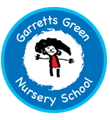Rhymes and Songs.
Rhymes and finger plays are an important part of early childhood education. They are fun and support children’s learning and development in many areas including:
Communication and language: You will be supporting them to learn to talk as they become familiar with the words and rhythm, and begin to imitate the sounds you make, or join in with the words. They will learn new words in a meaningful and fun context.
Physical development: You will be supporting them to develop muscle control and coordination as you help them to follow the actions in rhymes.
Literacy: You will be supporting early reading and writing skills as they develop phonological awareness by hearing sounds in the rhymes.
Mathematics: You will be supporting them to learn to count, add and subtract numbers when you sing number rhymes.
Personal, social and emotional development: You will be building strong positive relationships through daily singing games and rhymes with individuals and small groups. They promote connectedness and support the well-being of both children and practitioners.
Research has shown that babies respond to the beat and rhythm of language even before they are born. They are in tune with their mother’s heartbeat from an early stage, so a steady beat and the rhythm of songs and rhymes can be very soothing for them. Songs and rhymes generally have a higher pitch that catches a baby’s attention better than regular speech.
We also tend to use a slower pace and lots of repetition which makes it easier for children to hear the individual sounds that make up words. Even while having fun, children’s brains are working hard.
When you share a song or rhyme with a child, they are learning lots of the building blocks for communication. You will be making eye contact, creating opportunities for turn-taking, helping them to listen and pay attention, and of course, understand language too.
Rhyming helps children start to work out how sounds are put together to create words, which helps with speech development and with reading as a child gets older.
Rhythm can help children hear the syllable structure of words as well as separating words in sentences. Lots of the best rhymes have actions too. These are useful for us all when trying to remember the words, but also encourage children’s motor skills and coordination.
SEIC-Pedagogy-in-Practice-Issue-4-Sound-Rhythm-and-Rhymes.pdf (glowscotland.org.uk)
Choosing rhymes and finger plays Rhymes can be said, sung or chanted at anytime throughout the day so are easy to add them into your daily routine. You can plan specific rhymes that are linked to a particular routine, activity or theme. There are many rhymes that we might think of as traditional nursery rhymes or you may have others that you use regularly. Although it can be tempting to stick with rhymes and finger plays that you know, it is important to think carefully about why you are choosing a particular rhyme.
Please find below the songs and rhymes you child will be learning at nursery over the academic year. We hope you find them useful.
